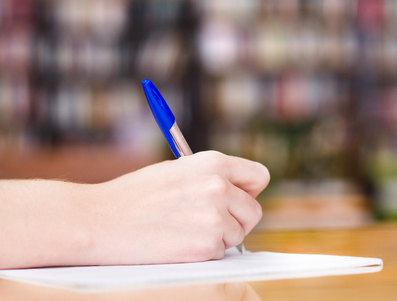Education or ‘selecting the new elite’? Criticism of primary school testing
Senay Boztas
As the oldest children in Dutch primary school prepare for the obligatory ‘end test’ that will determine their educational future – at least in the short term – more doubts have been raised about the Dutch grammar system.
According to current affairs programme, Pointer, no other country gives its children a major selection so young and the current system is still based on tests and ideas from the 1960s.
‘It is child abuse – I really mean it,’ said Jacqueline Nobels, a teacher from De Peppelaer school in Haarlem. ‘I think it’s only getting worse. Children are getting ever more nervous…they are just 12. What on earth are we doing?’
Inequality
At the end of primary school, Dutch children are given a ‘norm-referenced’ test where they are set against their peers in order to determine which level of secondary education they will follow: VWO, Havo or VMBO. Although it is in theory possible to go up – and schools can eject children they deem to be failing – studies suggest it is actually difficult to move a level higher if you develop later.
Repeated research – for instance from the CPB and SER – suggests the Dutch education system is increasing inequality of opportunity rather than being ‘the great equaliser’: children of lower-educated parents and those with another mother tongue at home are apparently structurally disadvantaged.
The Onderwijsraad Dutch schools council believes the system gives children insufficient chance to develop their potential – a problem exacerbated by the coronavirus pandemic. In 2021 it urged for selection to take place later, after a three-year, mixed ability ‘bridging class’ in secondary school.
Other studies show stress levels amongst some of the world’s happiest children have increased dramatically in recent years.
Courage
Campaign group Leve het Onderwijs, which believes obligatory testing should be scrapped and a rounded education offered instead, in February had a meeting of 70 school leaders who think modernisation is essential.
‘For a long time, it has been known that this is bad for children, there has been advice from the Onderwijsraad, but just look around you: countries around us all do it differently,’ Marten Elkerbout, of educational Stichting Spaarnesant, told Pointer. ‘There is no other civilised land in the world where selection takes place so young. It needs some political courage to do something.’
Other experts point out that since the law changed in 2014 to require a ‘pupil monitoring system’, primary schools have effectively been testing and monitoring pupils from the age of six, using commercial examination systems – something that puts multilingual children at a disadvantage.
Non-Dutch homes
Karen Veij, former director of testing Bureau ICE, who has recently written a thesis on where the Dutch testing system is going wrong, said misconceptions about intelligence and testing systems from the 1960s have never been updated.
‘We have a selection where we don’t look at what children can do and whether it fits further education – we have no idea what they need, because we just choose the highest-scoring percentage,’ she told Dutch News. ‘This is a very strange thing to do for children who come in with disadvantages, because we select very young. Even in England, they pushed the selection age back, although not for grammar schools, and every year later is better.
‘Actually, the pupil monitoring system means we start [judging children] at the age of six.’
The new elite
She said that children from less privileged socio-economic backgrounds or another language at home are structurally disadvantaged. ‘I see multilingualism as a rich resource, not a problem, but when you are immediately compared with children who grew up in a Dutch-speaking context, you will score lower on grammar, reading skills and speed because you came in with another mother tongue.’
She believes some policy makers speak empty words about addressing inequality of opportunity, while upholding an educational selection system that bakes it in. ‘We are not busy with education– we are busy selecting the new elite,’ she said. ‘That is the focus in the Netherlands and that is what we are doing with the tests.’
Dutch News has asked the education ministry for a comment. Dennis Wiersma, minister for primary education, told Pointer. ‘I want to make our system more flexible through subsidies for schools that have mixed-level or heterogenous secondary school entry classes.’
Thank you for donating to DutchNews.nl.
We could not provide the Dutch News service, and keep it free of charge, without the generous support of our readers. Your donations allow us to report on issues you tell us matter, and provide you with a summary of the most important Dutch news each day.
Make a donation